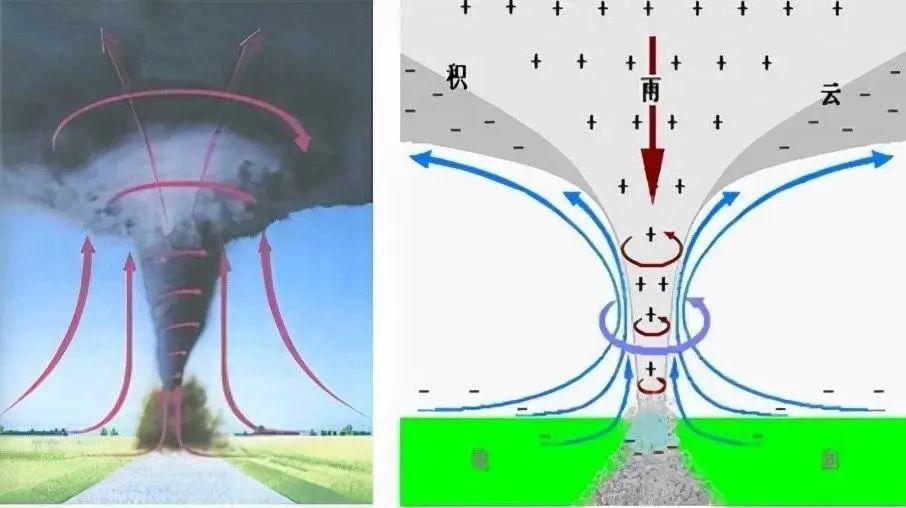
学习新知识前,我们复习一下前面内容:
总结:
1. 理解状语从句,就是把状语当成整体,作为一个副词来修饰主句;
2. 9种状语从句,我们不需要分辨特别清晰,根据语言的逻辑粗略理解即可。
书归正传,今天给大家讲一个很重要的语法点。
非谓语动词
【非谓语动词】是英文学习的重点和难点。
1、 说它是重点,那是因为非谓语动词在英语句子中实在太重要了,真正是无处不在。它为英语句子表达越来越丰富的含义以及句子简化做出了巨大的贡献。
2、 说它是难点,在于非谓语动词变化非常灵活,而且在句子中应用广泛,可以在非常多的场合使用,那么它的搭配就会显得比较复杂。
3、 另外虽然它是动词的各种变形,但是运用方法却和动词差别巨大。再加上你中文中没有非谓语动词这样一个概念,因此在运用中,中英文差异明显。
非谓语动词的这些特点,造成中国学生学习它们时就会感到非常困难。

非谓语动词这个概念是相对于谓语动词而来的。
我们先来了解一下什么是非谓语动词:
非谓语动词是动词特殊变形,它不再具有动词的属性(动词的属性是在句中做谓语),但是在语义上与原词有密切关系。
之前老何讲过,英文遵循一个完整分句有且只有一个谓语动词的原则,为了能表达丰富的动态含义,英文可以使用并列谓语和从句。
而非谓语动词则是使用使用更为广泛和灵活的表达,它既不跟句子原则抵触(因为它们不具备动词属性),可以在句子中大量使用,而且还具有动词相关的含义。
我们可以从形式上将非谓语动词大致分为三种情况:
--- v. ing (严格来说,该形式分为动名词和现在分词两种;简单起见,我们把它们当成一种情况。)
--- v. ed (过去分词,这里需要与动词的过去式区分开)
--- to+ v. (不定式)
非谓语动词的作用
非谓语动词在句子中使用非常灵活,能在很多场合使用。
1)与be动词等合作,组合表示不同的时态
如:be + v.ing 进行时态 has/have/had+ v.ed 完成时态
2)与be动词组合形成被动语态
如:be + v.ed; have been + v.ed
3)在句中做除谓语外的其它成分
- 作主语 v.ing; to+v.
- 作宾语 v.ing; to+v.
- 作表语 v.ing; v.ed
- 作定语 v.ing; to+v.; v.ed
- 作状语 v.ing; to+v.; v.ed

【Note】
1) 不定式的各种语法作用:
不定式在句子中可做主语,宾语,表语,定语和状语。
(我们其实可以将不定式当成具备动作含义的名词--主语、宾语,形容词--表语、定语,副词--状语)
- To develop our information industries and other high-tech fields according to the 2025 Plan is necessary.(注:也可以改成形式主语it的句子结构:it is necessary to develop our information industries and other high-tech fields according to 2025 Plan.)(主语)
- We are about to start.(宾语)
- They had no choice but to lay down their arms.(宾语)
- My work is to clean the room every day.(表语)
- To run a direct current motor, we must connect it to a direct current source.(状语,目的)
- To say the truth, he is not equal to this task.(插入语)
- To compare this book with that one, you would find a great difference between them both.(状语,条件)
- Hydrogen and copper oxide react to form copper and water.(状语,结果)
- Energy must be added to cause (状语,目的)some chemical changes to occur(定语).
- This question is too difficult to answer. (状语,结果)
- We have quite a lot of work to do.(定语)
- All of us have admitted the data to be correct(定语)
2) V.ing 的各种语法运用
- Cutting metal is no simple operation.(主语)
- We are cutting metal.(和are组成进行时态谓语)
- One of the important uses of this machine tool is cutting metal. (表语)
- The worker stopped cutting metal.(宾语)
- We saw many workers cutting metal.(定语)
- We were found cutting metal in the workshop. (定语)
- This lathe is used for cutting metal.(宾语)
- Before cutting metal you should carefully clean the machine.(宾语)
- The student cutting metal in the workshop works very hard.(定语)
- Cutting metal,the workers are very careful. (状语,时间)
- While cutting metal, the workers don’t talk with each other. (谓语组成成分,while they are cutting metal.)
- There are lots of metal cutting machines in our plant. (定语)
- The rain having stopped, we resumed the game.(状语)
【进阶学习】
V.ing 的两种形式(动名词和现在分词)
3) 动词过去分词的各种语法运用:表语,定语,状语
- The cup is broken.(表语)
- A solved problem(定语)
- A highly developed tertiary industries(定语)
- A book written by the old scientist(定语)
- The problem discussed by... (定语)
- Heated, the metal expands.(状语,条件)
- Given a new-type computer, we will carry out this work much better.(状语,条件)
- The chemistry professor sat there surrounded by many students.(状语,方式)
【进阶学习】
V.-ed 动词过去分词大部分时候含有被动含义,但是一些过去分词(主要是不及物动词)不表示被动含义,表示完成的含义。比如:
- A highly developed tertiary industries.
这里,developed不是表被动含义,而是完成的含义:发展了的。
同样的例子还有:
- Spring is come.
- Retired workers
- Risen sun

总结
1. 非谓语动词是动词特殊变形,它不再具有动词的属性(动词的属性是在句中做谓语),但是在语义上与原词有密切关系。
2. 非谓语动词在句子中使用非常灵活,能在很多场合使用。
1)与be动词等合作,组合表示不同的时态
如:be + v.ing 进行时态 has/have/had+ v.ed 完成时态
2)与be动词组合形成被动语态
如:be + v.ed; have been + v.ed
3)在句中做除谓语外的其它成分
- 作主语 v.ing; to+v.
- 作宾语 v.ing; to+v.
- 作表语 v.ing; v.ed
- 作定语 v.ing; to+v.; v.ed
- 作状语 v.ing; to+v.; v.ed

















